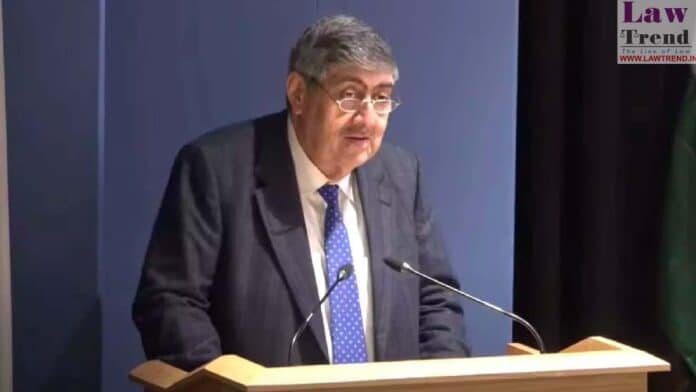In a powerful call for inclusivity and legal reform, former Supreme Court judge Justice (retd) Sanjay Kishan Kaul on Saturday emphasised the need for the judiciary to act as a “catalyst” for the rights of LGBTQIA+ persons in India. Speaking at the launch of a policy document on queer inclusion organised by the Keshav Suri Foundation and the Vidhi Centre for Legal Policy, Justice Kaul addressed critical shortcomings in India’s legal and social approach to queer rights.
“India’s legislative landscape for LGBTQIA+ recognition has evolved, but significant gaps persist,” Justice Kaul said. “The term ‘queer’ remains undefined in Indian law, and asexual individuals are entirely invisible in policy frameworks.”
Citing the recent tragic murder of tennis player Radhika Yadav, allegedly by her father over a personal relationship, the retired judge underscored the entrenched social stigma that continues to affect not just queer individuals, but also those in inter-caste and non-traditional relationships. “We must acknowledge that societal attitudes, especially in rural areas, continue to be a major obstacle to acceptance,” he said.
Justice Kaul acknowledged recent administrative measures by the Union Ministry of Social Justice and Empowerment—such as allowing queer couples access to ration cards, joint bank accounts, and next-of-kin rights in death—but stressed these remain inadequate in the absence of statutory recognition. “These are welcome steps, but without legislative backing, they fall short of ensuring comprehensive rights.”
He strongly advocated for anti-discrimination legislation, noting that access to essential goods, financial services, and public infrastructure remains an “existential difficulty” for many LGBTQIA+ individuals. He highlighted that even routine tasks like opening a bank account can become daunting if identity documents do not align with one’s gender identity.
“Access to capital—whether to start a business or buy a house—is closely tied to how easily one can navigate financial systems, which are often exclusionary for queer persons,” he said.
Justice Kaul warned that legislative inertia on key issues such as same-sex marriage, adoption, and inheritance rights threatens to leave queer individuals in a prolonged legal limbo. “A conservative mindset still prevails across much of the country, creating additional hurdles,” he remarked.
Nevertheless, he struck an optimistic note, observing that urban areas and younger generations are increasingly open to LGBTQIA+ inclusion. “The country is moving forward on the path of progressive recognition of queer rights. I truly believe the future is more promising than what is behind us,” he concluded, quoting gay rights icon Harvey Milk: “Hope will never be silent.”
The event marked a significant moment in the ongoing dialogue about queer inclusion in India, highlighting the urgency of reform and the role of the judiciary, legislature, and society in shaping a more inclusive future.




